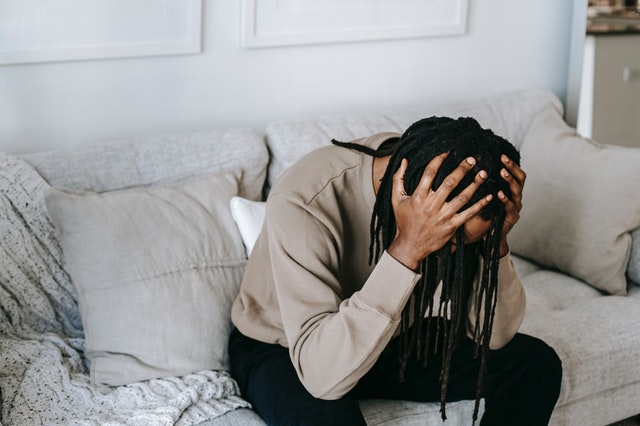How can you help someone deal with anxiety? If you are like most Americans, someone you love suffers from anxiety-and you want to be as helpful as you can.
First remember that anxiety is not a flaw or a fault. It’s a normal feature of being human. Anxiety is designed to protect and, for the most part, that’s what it does. If you get a feeling that you’re at risk or in danger (of any kind), it is thanks to anxiety doing its job. Of course, it is possible for anxiety to become chronic and/or disproportionate. This is often the indicator start of an anxiety disorder.
Since anxiety disorders are common, there is a reasonable chance that you know someone struggling with such an issue. If so, you may be wondering how you can help them.
What You Can Do Daily to Help Someone Deal with Anxiety
Talk to Them About It — But Not All the Time
It’s really important to let them know you’re there to learn and help. Let them know you can relate and that the lines of communication are open. Stay in touch. Check-in often. But… you don’t have to always ask about their anxiety. Follow their lead. If they need to vent, be available. If the conversation is flowing naturally in other directions, however, there is no need to redirect it.
Don’t Try to “Cure” Them
This may sound silly and obvious. But it’s not unusual for friends to think they’re helping by pressuring someone with anxiety into situations. Someone with social anxiety, for example, does not need anyone to force them into conversations with strangers. Your friend probably already has a therapist. They don’t need unsolicited advice or support elsewhere.
Directly Ask What They Need From You
You don’t have to guess about how to help someone deal with anxiety. It’s o.k. to ask what a person with anxiety needs. You can just ask. Let them know you’re there for them. Ask for input as to what you can do to be supportive. When they share their preferences, listen respectfully to be sure you understand their needs.
Educate Yourself
Consult your nearest search engine and learn whatever you can learn about anxiety disorders, e.g.
- Different types
- Symptoms
- Treatment options
- How it impacts people differently
- Signs to look for
Its means a lot when you demonstrate that you are willing to take the initiative to be aware and informed.
Recognize the Difference Between Supporting and Enabling
Someone with anxiety may, for example, display behaviors like avoidance or social withdrawal. They may request that you join them in such actions. To do so is not supportive. When you support someone, it’s not about trying to force the world to conform to their needs. That would be called enabling. You are not here to make excuses for the person with anxiety. Rather, you want to be by their side during times that feel challenging. Remember, if you want to help someone deal with anxiety, you can’t coddle them.
To Help Someone Deal With Anxiety, Practice Your Own Self-Care
If a loved one is dealing with anxiety, it can be difficult for you, too. You may feel exhausted, frustrated, confused, and worried. Such a scenario requires balance. You must take care of yourself. Practicing daily self-care is an ideal way to show self-love. Some elements to consider:
- Regular sleep patterns
- Daily exercise and physical activity
- Healthy eating choices
- Stress management and relaxation techniques
- Getting some relaxing social time
Your commitment to self-care helps you. It also positions you to be better able to support others.
Help Them Find Guidance
Someone with an anxiety disorder is well-advised to seek out a mental health professional. As their friend, partner, or family member, you can do them a big favor by supporting this decision. Help them find a therapist. Be ready to hear about their sessions (if they choose to share). Remind them that there is no shame in being anxious or in seeking help. If you want to learn more about this process, please read more about anxiety therapy and let’s connect for a free consultation.





